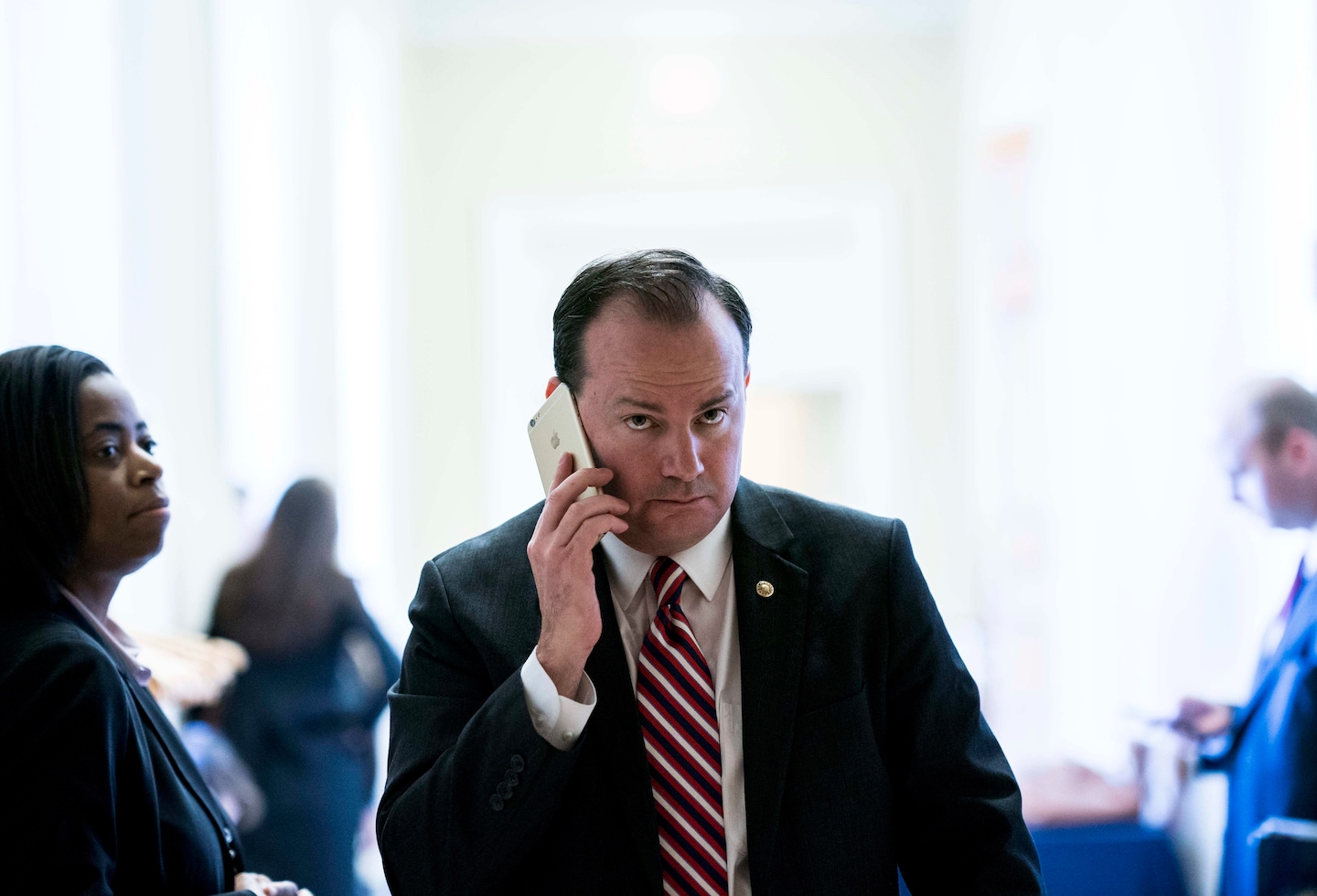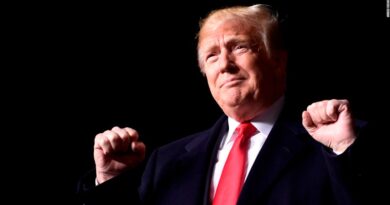Analysis | The key texts between Mark Meadows, Mike Lee and Chip Roy

Lee and Roy ultimately declined to object to the election results on Jan. 6 (unlike many of their GOP colleagues) and even publicly disagreed with the effort. But both sought to help the White House in the days and weeks after Joe Biden was declared the winner — including by pointing the White House to two now rather infamous lawyers, Sidney Powell and John Eastman.
Let’s walk through some of the more interesting texts.
The lack of actual evidence
As Election Day gave way to late November, then December and early January, it was clear Powell’s “Kraken” was indeed mythological. And the texts reinforce that the two GOP lawmakers understood that, as they pleaded for something — anything — to work with as they publicly sought to legitimate Trump’s claims.
Roy texted Meadows on Nov. 5, saying GOP lawmakers had “no tools / data / information to go out and fight RE: election / fraud.” On Nov. 7, he said, “dude, we need ammo. We need fraud examples. We need it this weekend.”
On the date of Powell’s and Rudy Giuliani’s conspiratorial news conference on Nov. 19, 2020, Lee and Roy made clear they were unimpressed with the evidence being presented.
Roy texted Meadows that “I kind of doubt she can” substantiate her claims. Roy texted, “Hey brother – we need substance or people are going to break…”
By Nov. 22, Lee texted Meadows a tweet from a conservative journalist, which noted that Powell had declined to provide evidence for her claims of a conspiracy involving Georgia’s GOP governor and secretary of state. He said, “we are struggling to figure out how to respond to things like this.”
By Dec. 16, Lee told Meadows that senators wouldn’t object to the election results “without some direction and a strong evidentiary argument.”
The legal liability
Lee’s texts about the Nov. 19 news conference turned out to be rather prescient. After Powell and Giuliani repeatedly referred to baseless conspiracy theories involving Dominion voting machines, Lee warned about the legal liability they could create.
“I’m worried about the Powell press conference,” he said. “The potential defamation liability for the president is significant here. … For the campaign and for the president personally. … Unless Powell can back up everything she said, which I kind of doubt she can.”
Meadows responded: “I agree. Very concerned.”
Lee texted back: “Unless Powell can immediately substantiate what she said today, the president should probably disassociate himself and refute any claims that can’t be substantiated. … He’s got deep pockets, and the accusations Powell made are very, very serious. … That is an especially bad combination when you consider the damages that could easily be claimed (and indeed proven) and the deep pockets involved.”
The Trump legal team distanced itself from Powell a few days later. And now the Dominion claims are the subject of a major lawsuit against Giuliani and Fox News that a judge recently allowed to proceed.
Lee, notably, had actually pointed Meadows in Powell’s direction early on, texting Meadows her phone number and email address on Nov. 7 and complaining that she wasn’t being given access to Trump. He said two days later that he “found her to be a straight shooter.”
After it was all over, Republican National Committee Chairwoman Ronna McDaniel would tell the New York Times that she was concerned about Powell’s claims and worried about “what is the liability of the RNC, if these allegations are made and unfounded.”
Internal sniping
The tense situation at times boiled over, with the lawmakers complaining about their treatment and the cast of characters involved. At one point, Lee even suggested his close ally Sen. Ted Cruz (R-Tex.) and Sen. Josh Hawley (R-Mo.) were being self-serving by pushing to object to the election results.
“I have grave concerns with the way my friend Ted is going about this effort,” Lee said Jan. 3, a day after Cruz announced that he and 10 other senators would object. “This will not inure to the benefit of the president.”
Lee said that without states submitting alternative slates of electors — which they hadn’t yet done — “this could help people like Ted and Josh to the detriment of [Trump].”
When Lee declined to go along with the effort, Trump repeatedly brought him up at a rally on Jan. 4, saying he was “a little angry” at the senator. The same day, Lee texted Meadows, “I’ve been spending 14 hours a day for the last week trying to unravel this for him. To have him take a shot at me like that in such a public setting without even asking me about it is pretty discouraging.”
A few days after the Nov. 19 news conference, Roy responded to more Giuliani claims by texting, “Frigging Rudy needs to hush…”
The shoddiness of it all
One of the effort’s defining features was how half-baked it was. And Lee’s texts reinforce that.
In addition to complaining about the evidence presented (or the lack thereof), he repeatedly argued that the Trump campaign needed states to submit alternative slates of electors for any of it to work: Congress needed competing slates from which to choose.
On Jan. 3, Lee texted a link to Meadows that he hoped showed Trump understood that.
“Should I take this as a good sign that he gets it?” Lee asked.
“Well. Not as good as it appears,” Meadows responded.
Meadows suggested that Trump was pressuring Vice President Mike Pence to overturn the election through his historically ceremonial role on Jan. 6: “He thinks the legislatures have the power but that the Vp has power too.”
“VP but not the House and Senate?” Lee asked.
Meadows responded: “I am not sure.”
That turned out to be an unreliable strategy. Pence declined to help overturn the election, dooming the whole effort to failure.
The bargaining
As noted at the top, neither Lee nor Roy ended up objecting to the election results. But both tried to bargain with Meadows in the closing days.
“He’s got a very real opportunity for a win in 2024,” Lee said of Trump on Jan. 3, while complaining about Cruz and Hawley. “That opportunity could be harmed in multiple ways this effort.”
Roy made clear by Dec. 31 that he wasn’t on board.
“The President should call everyone off. It’s the only path. If we substitute the will of states through electors with a vote by Congress every 4 years… we have destroyed the electoral college… Respectfully,” Roy said.
He urged Trump to “Give a statesman speech. End strong.”
The following day, Roy added: “If POTUS allows this to occur… we’re driving a stake in the heart of the federal republic…”
Roy also decided to make a point on the House floor.
Jan. 3 was swearing-in day, and just as members could object to the presidential election results, they could also object to the seating of their colleagues. If the presidential election results were so suspect, Roy reasoned, shouldn’t those doubts apply to the election of members of Congress, in those same states, on the same ballots? So he pushed for a vote.
Only two Republicans objected to seating their colleagues, apparently believing that although Biden’s win was in doubt, their victories somehow were not.


